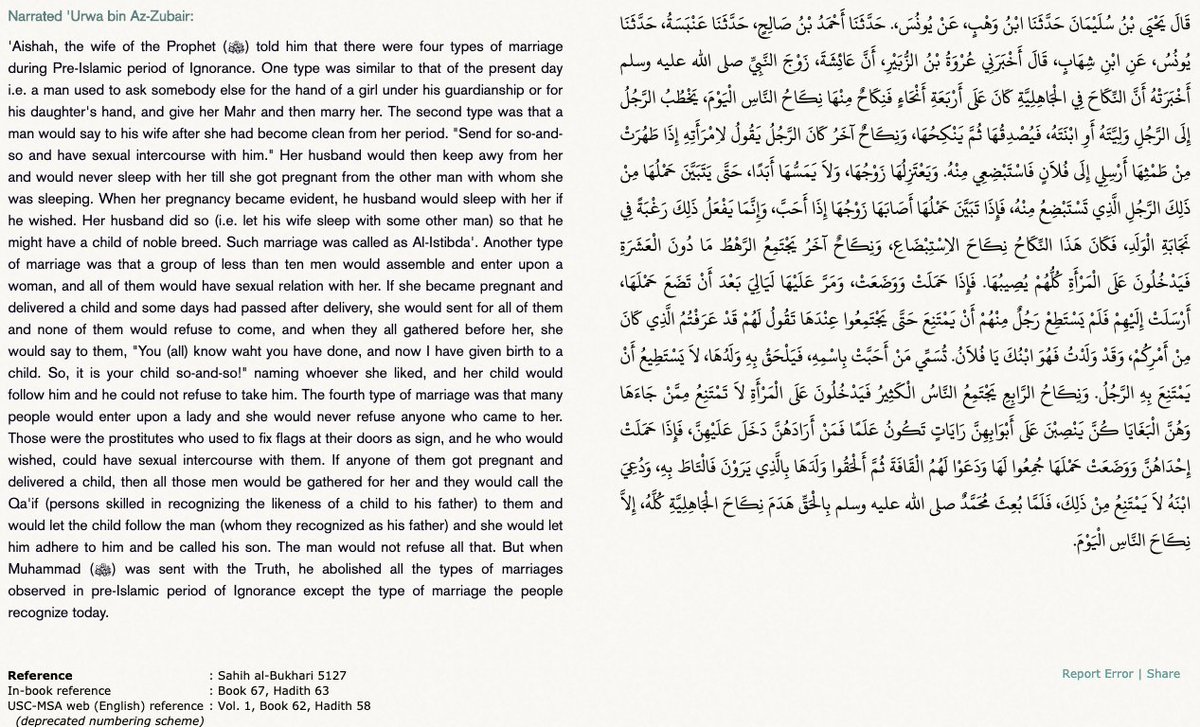Did you know the Christian chieftain Zuhayr b. Janab al-Kalbi (d. 564) began a wave of iconoclasm/destruction of Arabian pagan shrines in 6th C? How did it pave the way for Muhammad’s purging of Kaaba idolatry?
Behold:
Destruction of al-‘Uzza (Part 2/3)
Check it out!
Behold:
Destruction of al-‘Uzza (Part 2/3)
Check it out!

If you have not already, read Part 1/3 and get caught up!
https://twitter.com/emrane/status/1301966750762893314
Word of a pagan shrine reached Zuhayr, indefatigable poet-chieftain of Quda‘ah, throwing the zealous champion into a rage. His Kalbid men & Qaynid kin massacred pagan Ghatafanids, destroying the shrine of al-‘Uzza & slaying a prisoner spilling his blood to desecrate it. 

Zuhayr’s desecration oddly or deliberately emulates a blood sacrifice to the goddess al-‘Uzza, perhaps in order to liken his terrible wrath to the bloodthirsty pagan Lakhmid king, al-Mundhir III. This was the first destruction of al-‘Uzza’s shrine, the final coming in Part 3/3. 

The story coincides w/ collapse of pagan influence in al-Hirah mid 6th C. Zuhayr is said to have formed an alliance with his Christian coreligionists from Ethiopia. General /king Abraha (d. ca. 553) entrusted him as vassal governor over former Lakhmid vassals: Bakr and Taghlub. 

Stories of Zalim vs. Zuhayr—famous in Ibn al-Kalbi, Book of Idols—while fanciful take place in a context where pagan power of Lakhmids has broken, & where influence of Christianity returned with the Quda‘ah patrolling & exterminate the vestiges of pagan worship. 

The hypothesis fits a claim by Ibn al-Kalbi that in decades before Islam, the cult of al-‘Uzza suffered decline in the Hijaz. This sudden plunge in fortunes coincides with a cluster of reports he cites about the destruction of various idols and cubic shrines around the same time. 

The destruction of al-'Uzza tells the story of the male kings & generals eradicating the influence of the Divine Female in Arabia.
Stay tuned for the final—and tragic!—thread: Destruction of al-‘Uzza (Part 3)…& my upcoming book on female power in late antique Arabia. Shukran!
Stay tuned for the final—and tragic!—thread: Destruction of al-‘Uzza (Part 3)…& my upcoming book on female power in late antique Arabia. Shukran!

• • •
Missing some Tweet in this thread? You can try to
force a refresh





















